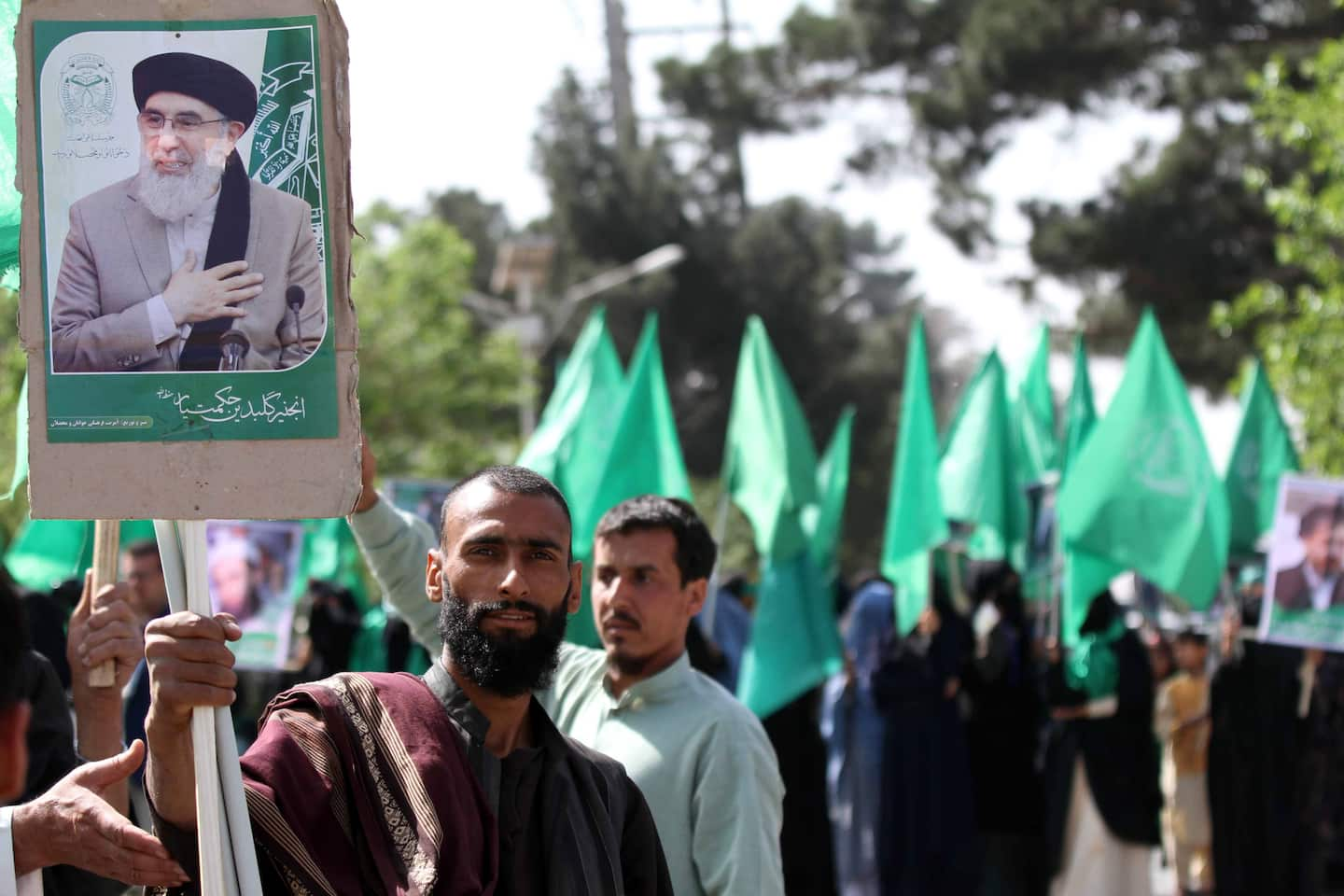A ramped-up push for peace is splintering Afghanistan’s already fragile government

The visions are wildly different in substance and depth. But they all show support is building for some form of a transitional government in Kabul, with many of Ghani’s political foes eyeing how to secure more power for themselves amid such a move.
Leaders in Kabul remain optimistic they can present a united front despite widening divisions. But the lack of consensus just weeks away from a May 1 deadline set by the United States could place the Taliban at a further advantage in negotiations over who controls post-settlement Afghanistan.
“It’s had a bipolar impact,” Abdullah Abdullah said of the new U.S. approach to the Afghan peace process in an interview. Abdullah is the chairman of the High Council for National Reconciliation and leading negotiations with the Taliban. “It has created hopes, it has created anxiety, it has led to depression, it has led to mania.”
Official and unofficial power brokers in Kabul have been deeply divided for years — with Ghani and Abdullah maintaining one of the fiercest rivalries. The two men were the front-runners in the country’s most recent election that was decided by a slim margin for Ghani amid allegations of fraud.
The election before that — also between Abdullah and Ghani — saw a similar outcome that was resolved with a vague power-sharing agreement that in many ways cemented the leaders’ differences.
“At this stage what we need is a very unified position,” Abdullah said. Without that, it “will be a gift to the Taliban.”
Dostum’s plan stresses the rights of ethnic minorities and the decentralization of political and military control. Hekmatyar’s calls for a “non-coalition” government composed of “non-controversial individuals.” And Ghani proposes a cease-fire followed by elections and changes to the constitution.
The Taliban’s political office has largely maintained unified public messaging throughout negotiations with the Afghan government and has not commented on any draft proposal beyond that the U.S. plan is “under review.”
Key steps in the draft U.S. plan already appear to have stumbled. The document called for a meeting between the two negotiating teams in Turkey to jump-start talks in Doha, Qatar. Initially the conference in Turkey was planned for early April, but the date has repeatedly slid back, and now concerns surrounding the start of Ramadan in mid-April have some worried it won’t convene until May.
“There are lots of points,” Abdullah said, explaining he welcomed the suggestions. “There are points of differences as well points of accord. … Now we are working on compiling those views.”
Ultimately, Abdullah said he is hopeful Afghan leaders will gather behind a single proposal, but he said the peace plans publicly released before holding private discussions have been counterproductive. It could “break down political consensus” rather than bolster unity.
A senior government official said “extensive engagement with all parties” is needed to “ensure a desired outcome in the peace process.” The official spoke on the condition of anonymity to discuss ongoing policy deliberations.
“At a point” the United States’ accelerated push undermined Ghani’s government, the official said, but overall the Biden administration’s approach is seen as “more calculated.”
“We are happy with the fact that they regularly consult with the Afghan government,” the official said.
The Biden administration said it is still reviewing U.S. Afghan policy but has signaled it’s unlikely that U.S. forces will withdraw by the May 1 deadline agreed to in a deal the Trump administration struck with the Taliban last year.
Without a peace agreement, the withdrawal of U.S. forces from Afghanistan could allow the Taliban to gain considerable territory. Political leadership of the Taliban said the group has decreased violence, but its fighters have launched operations expanding influence and retaking territory around key Afghan cities and towns in recent months.
The ramped-up U.S. diplomatic push for a peace deal is intended to avoid a disorderly withdrawal of U.S. forces from Afghanistan. That tight timeline is being publicly described by U.S. officials as an opportunity for progress, but Afghan officials have expressed concern.
“It’s quite late. It’s very, very late, but it’s welcome,” said former Afghan president Hamid Karzai. “The urgency in tone is something that we welcome very much, that’s exactly what we wanted from the United States of America.”
Karzai declined to comment on the specifics of the U.S. peace plan. “I have criticized the United States enough,” he said, laughing.
“As the saying goes it’s never too late. It’s never too late for a good cause,” he said.
As the deadline grows closer, political infighting in Kabul is intensifying.
Perhaps the more significant political rift exacerbated by increased U.S. diplomatic pressure is that between Abdullah and Ghani. The two men have been political rivals for decades, but under an agreement that settled a bitter presidential election dispute, Abdullah was charged with leading peace talks with the Taliban. Now, he said, Ghani’s team isn’t consulting him regarding the details of its proposal.
Karzai said the U.S. approach has “not necessarily” brought the Afghan president and Abdullah closer together, but he said he is also hopeful divergent ideas will eventually mesh.
Karzai’s public statements in the face of increased U.S. pressure have been restrained. During his last years in office he was a fierce critic of the United States, particularly on civilian casualties, and has often blasted Ghani’s more measured stand on the issue. He’s also been at odds with Abdullah and out of office remains one of the country’s most powerful political players.
“It’s being cooked,” he said of the Afghan government’s peace plan. “When the dish is ready, it’s that one dish. You don’t call it the [individual] names of all the vegetables that are in it.”
“It’s eventually one thing,” he said.






